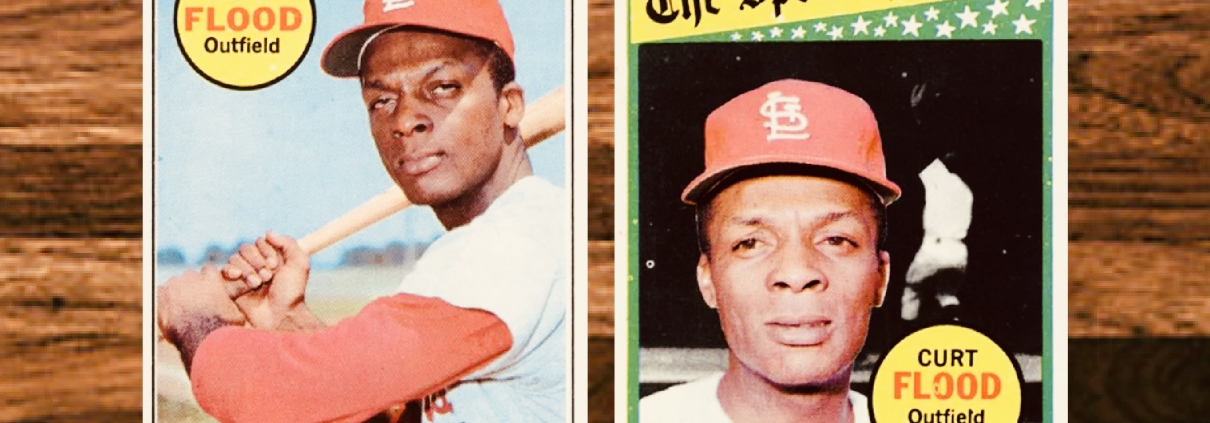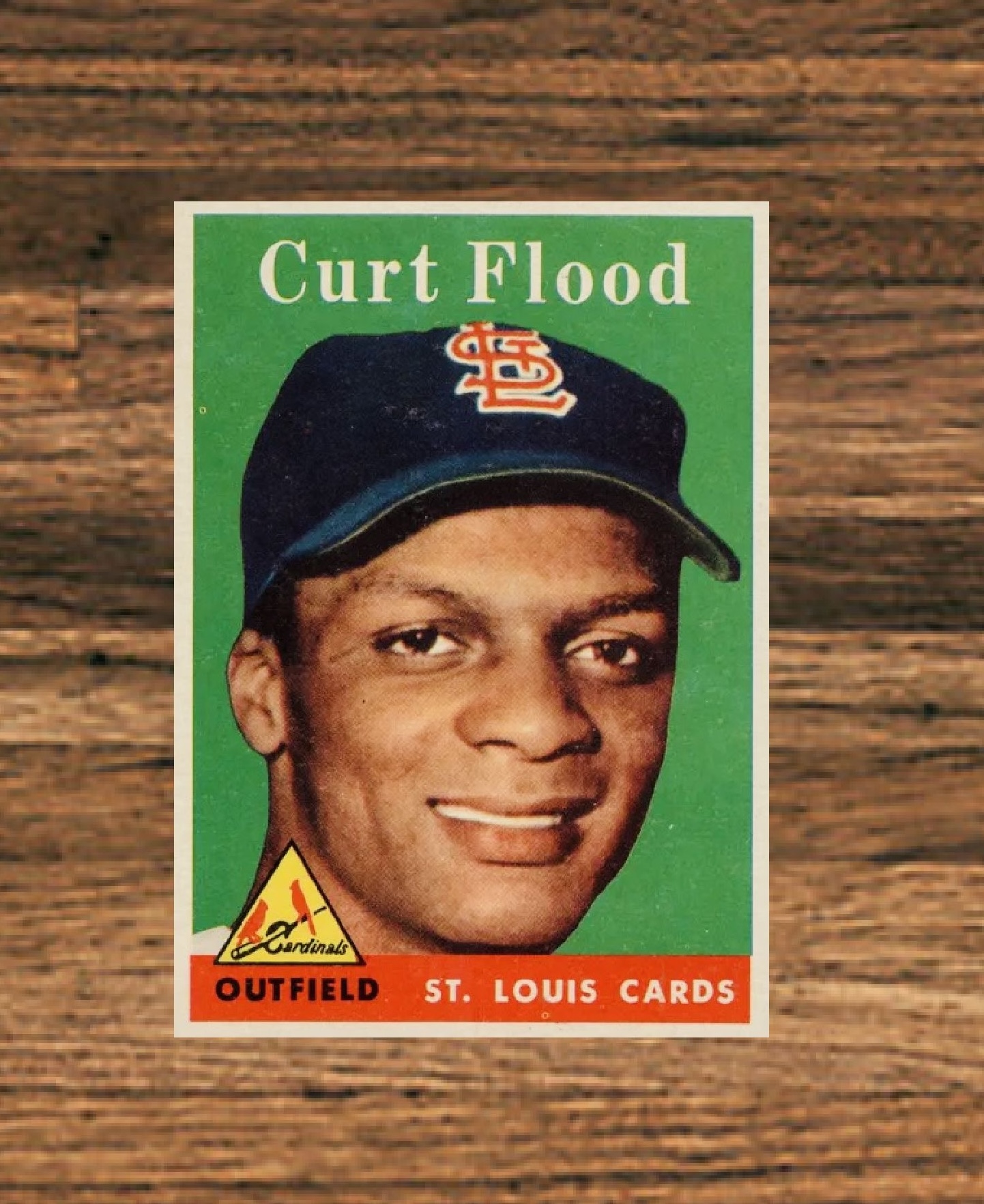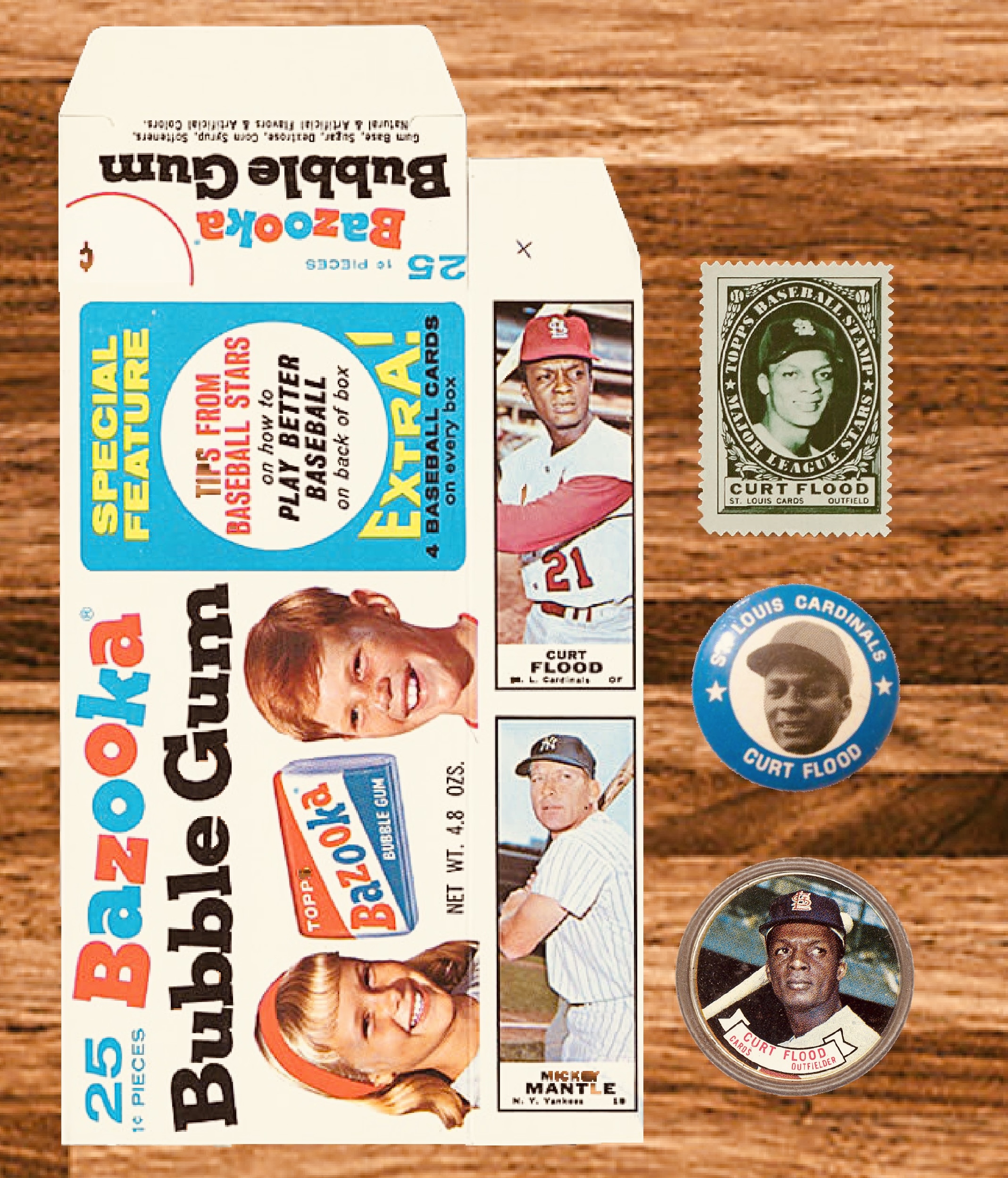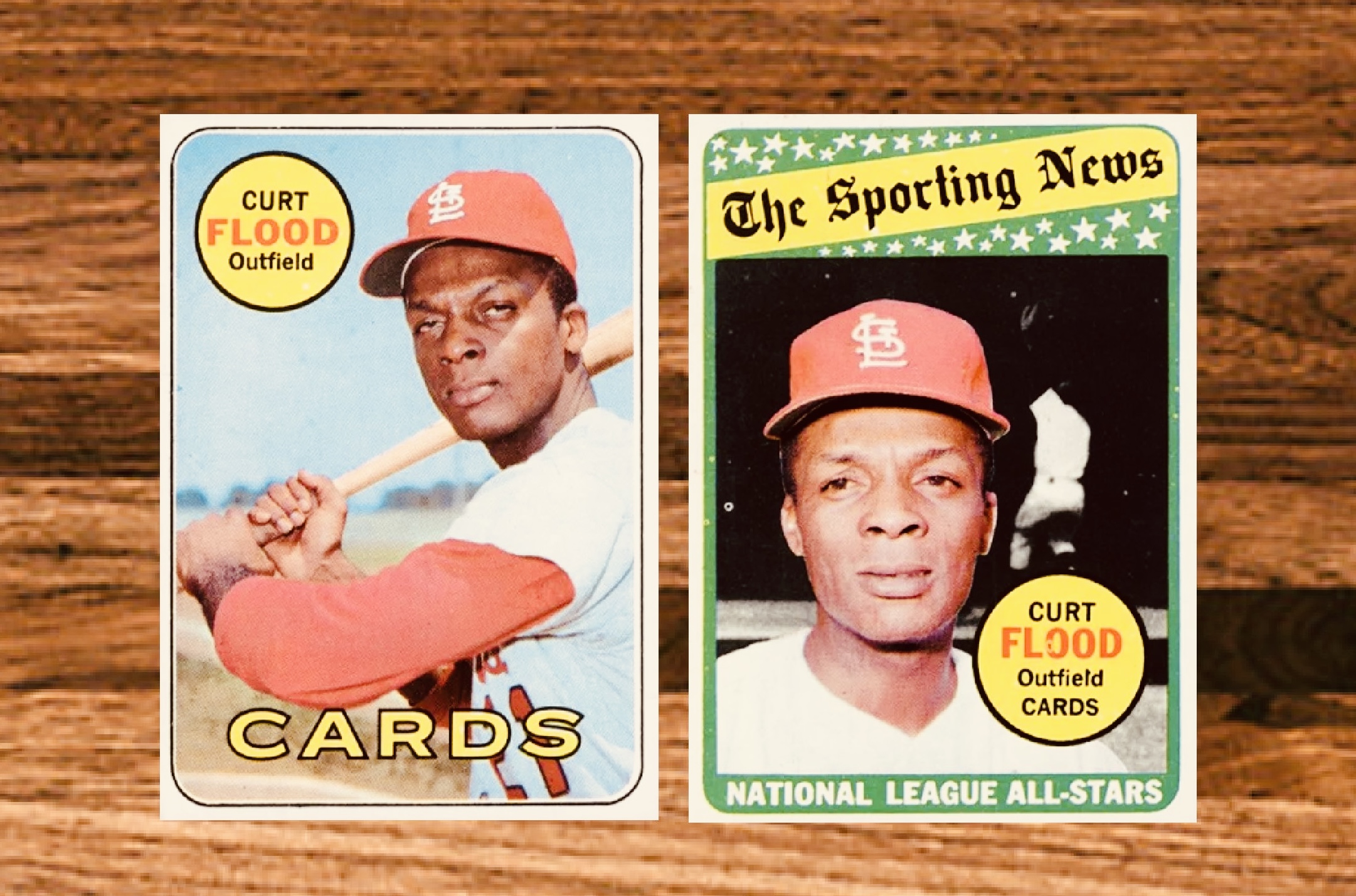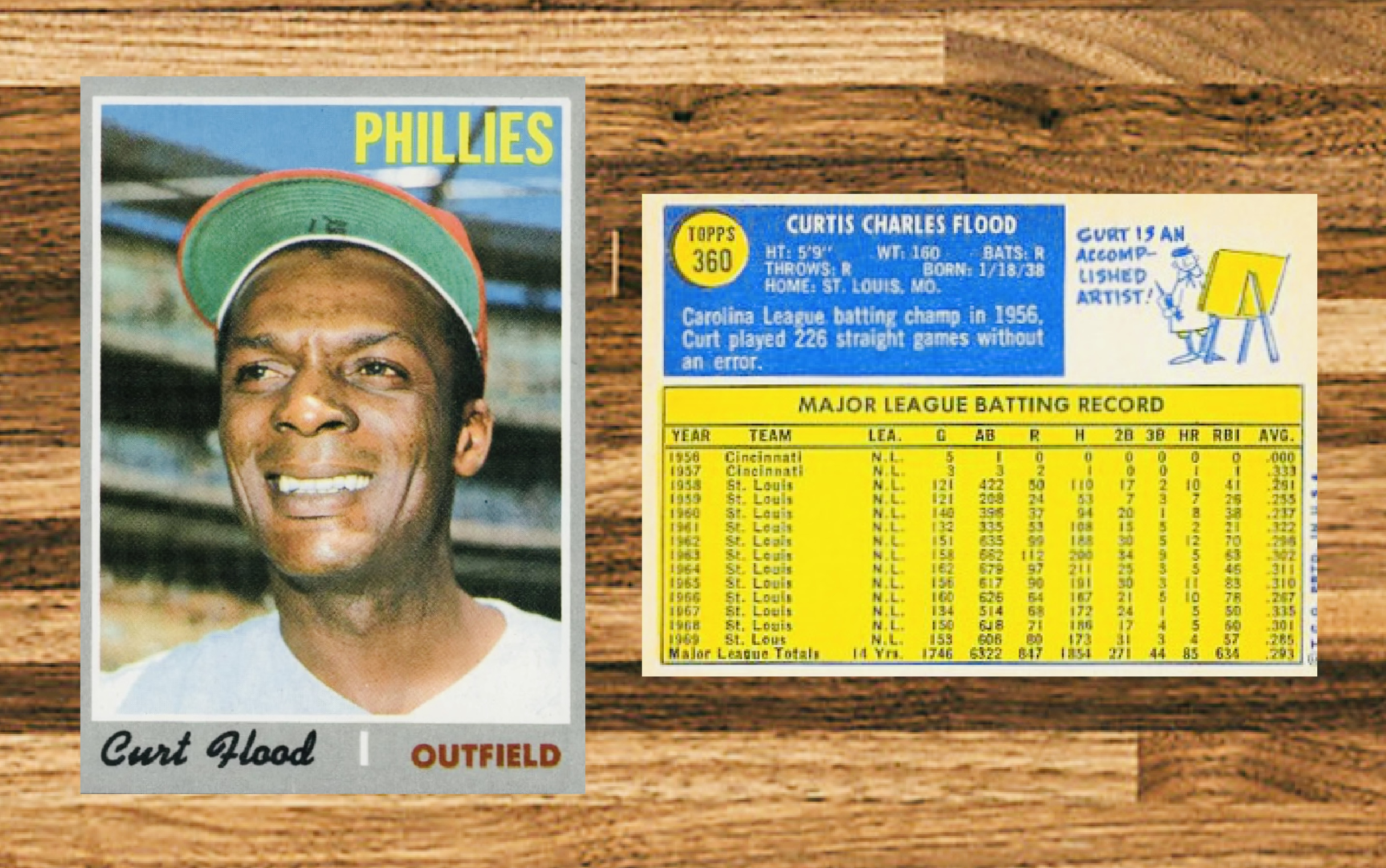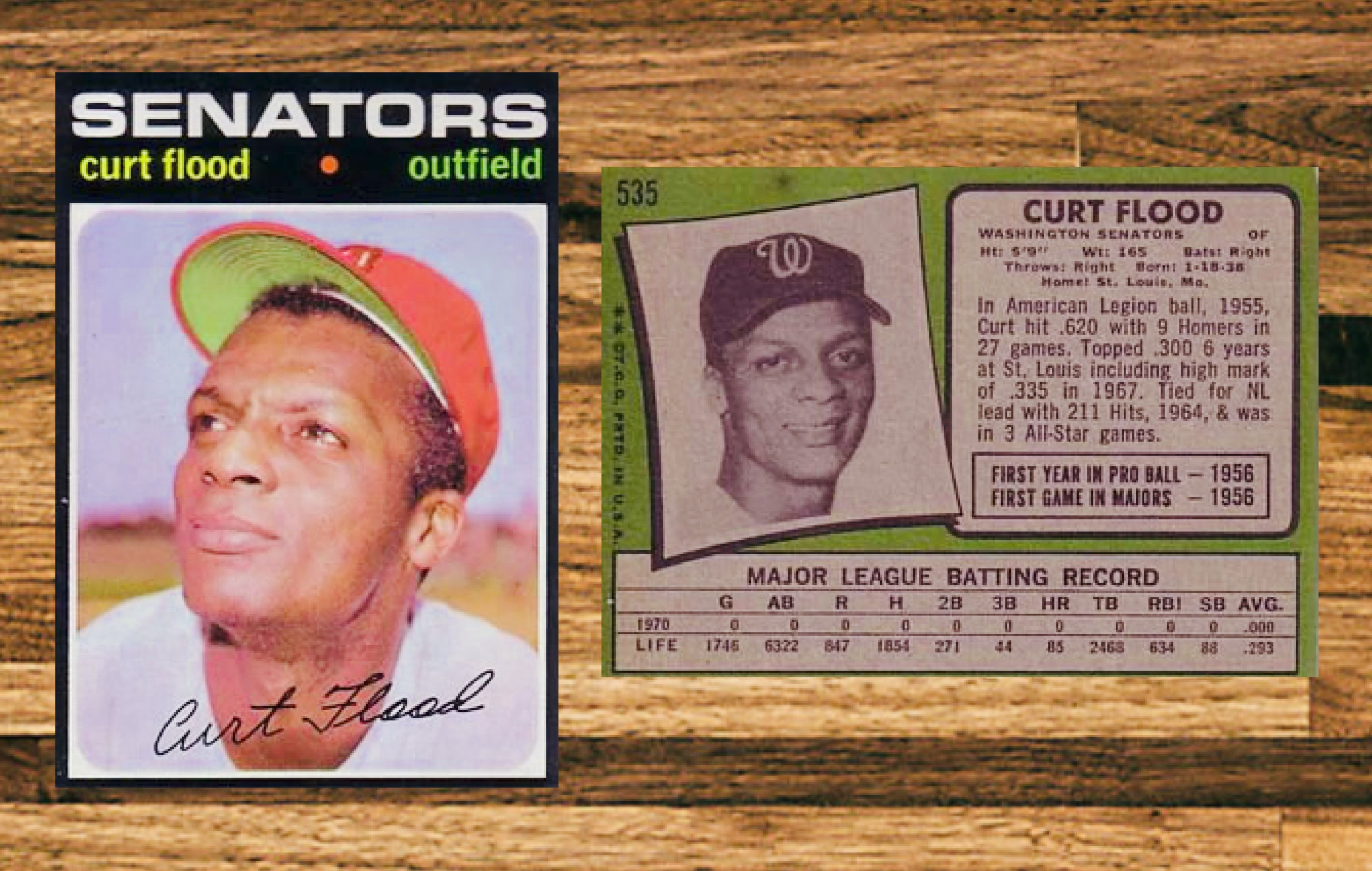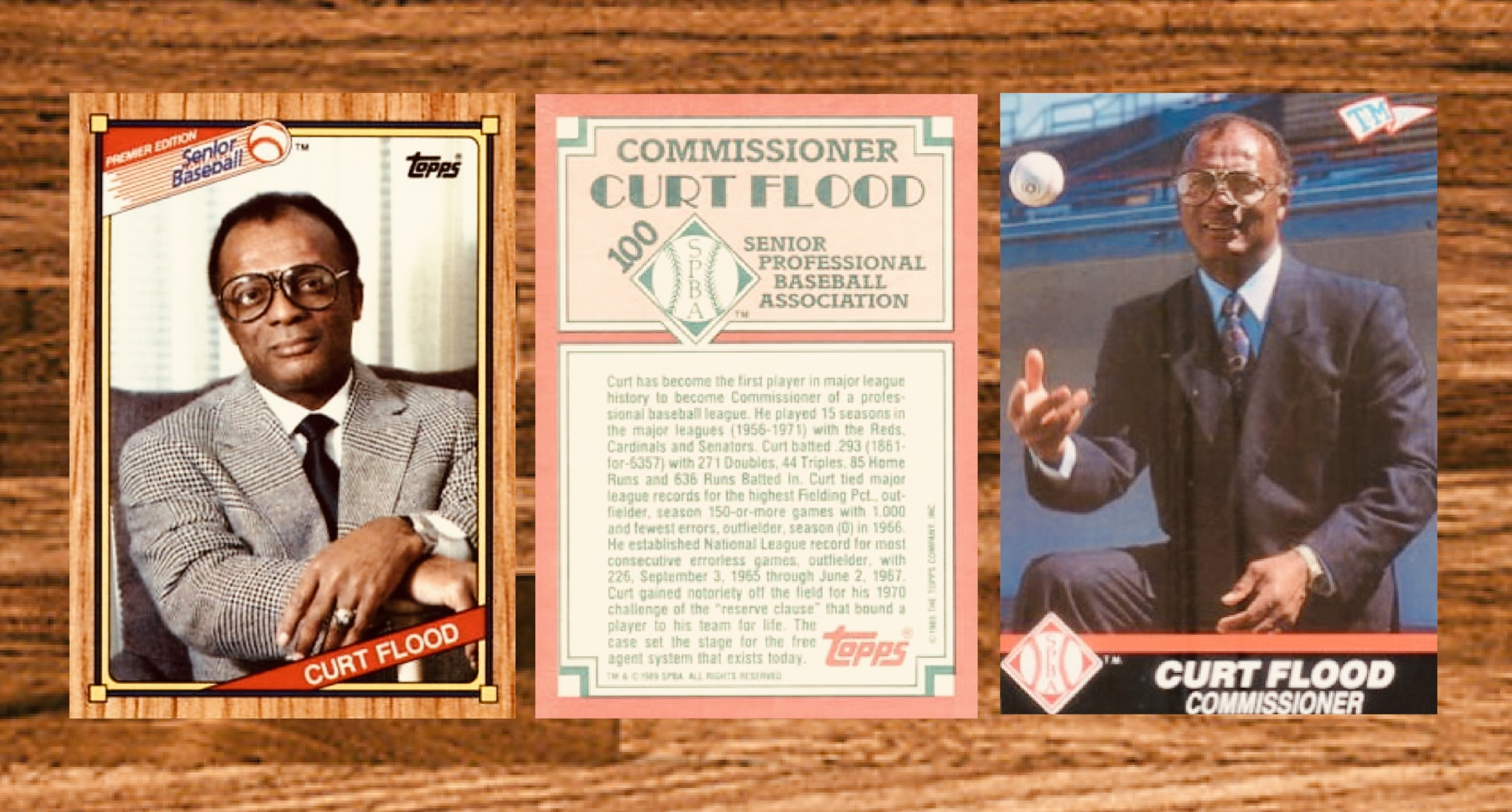Curt Flood’s Baseball Cards
Editor’s note: This article was originally published in 2022 as part of SABR’s Baseball and the Supreme Court Project.
Curt Flood first appeared on a baseball card in the 1958 set produced by Topps. At this point, Flood had appeared in just eight games across 1956 and 1957 for the Cincinnati Reds and his lone hit in four at-bats was a home run knocked off of Cubs hurler Moe Drabowsky on September 25, 1957. That offseason, Flood was traded to the Cardinals and spent 1958-69 in St. Louis collecting Gold Glove Awards (seven), All-Star nods (three), and World Series championships (two).
Throughout his tenure with the Cardinals, Flood was featured on all sorts of collectible cards and other items, including stamps, tattoos, playing cards, pins and bubble gum boxes.
In 1969, his last season with St. Louis, Flood appeared on two cards in the Topps set — his base card and final All-Star card. It was a fateful trade between the Cardinals and Phillies on October 7, 1969, that led to Flood’s refusal to report to his new team and form the basis for the challenge to the reserve system that went all the way to the United States Supreme Court.
Flood’s card in the 1970 Topps set is notable because Topps simply assumed Flood would report to Philadelphia following the trade, just like nearly every traded player before him. Because Flood refused to play for the Phillies in 1970, however, this card depicts him with a team for which he never suited up.
After sitting out the 1970 season, Philadelphia traded Flood to the Washington Senators, a trade he accepted. Flood stepped away from baseball after appearing in just 13 games for Washington. He is pictured as a Senator in the 1971 Topps set, the final card to be issued during his active playing career.
The 1971 Topps set does not feature complete career stats on the backs and for Flood features a solitary line of thirteen zeros with no explanation as to why he never played that year. It is worth noting, however, that his 1971 Dell Stamps card explicitly says that he sat out the 1970 season to challenge the reserve clause.
When the Senior Professional Baseball Association began play in 1989, Flood was tapped as league commissioner. Cards produced by Topps and T&M each mentioned his legal challenge to the reserve system.
Authors’ Note
Special thanks to SABR Baseball Cards Committee Co-Chair Jason Schwartz for his invaluable reviewing and editing assistance.
Sources
Flood v. Kuhn, 407 U.S. 258 (1972).


